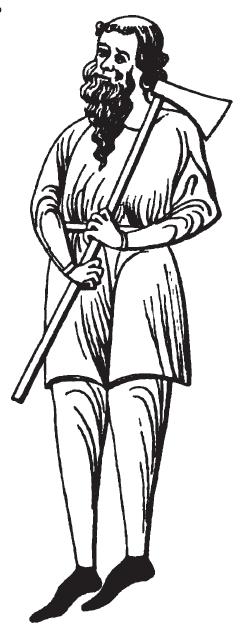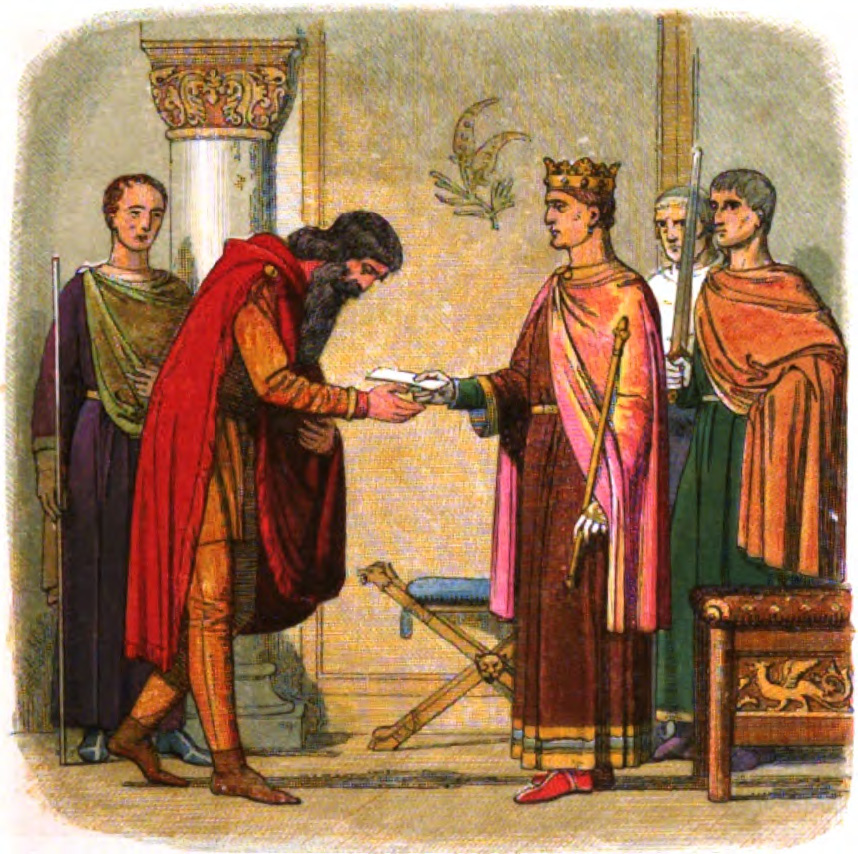No doubt the Norman Barons that had conquered England with Duke William, in 1066, would at some time have turned their ambitions onto the lands that lay across the Irish Sea. As it turned out, there was no need for such aggressive action; they were invited. It was a decision that the Irish would later regret.

Dermot MacMurrough (or Dermot naNGhall, meaning Dermot, king of the Foreigners) was born in 1110 AD. At the age 16, upon the unexpected death of his older brother (the king of Leinster) he was elected as the new Ui Cinnsealaigh (the ancient name for the Kings of Leinster). This succession, however, did not go down to well with Turlough O’Connor of Connaught, the High King of Ireland, who for whatever reason was opposed to the election.
Turlough’s response was to have far-reaching effects, some of which have remained with us until the present day. Turlough commanded a neighbouring chieftain, Tiernan O’Rourke, a man who had a reputation for his love of battle, to invade the lands of Leinster. Tiernan took to the task with much enthusiasm, but in so doing broke one of the sacred Irish Laws. The Daire’s Law specifically forbade the killing of cattle by an enemy for by doing so, you were forcing starvation on the common people (dairy products were their sole food source), and Tiernan killed the cows of Leinster.
The conflict between Dermot and Tiernan continued for many years and the lands of Leinster were subject to many raids and skirmishes, but finally in 1133 Dermot was able to fully recover his throne after attacking Tiernan’s homelands in Ossory, and sacking the town of Waterford, just like his great-grandfather had done before him. The following two decades were mostly peaceful for Dermot, and he was able to avoid involvement in many of the wars that the other four provinces were waging on one another.
In 1152, war broke out once again when Dermot aided the High King Turlough O’Connor in a raid on Tiernan O’Rourke’s land. Tiernan’s land was destroyed, his armies routed and his cattle killed and burnt. As Dermot was traveling through Meath to return to Leinster, the King of Meath told him that Dervorgilla, Tiernan’s wife and the King of Meath’s sister, wished to run away from her brutal husband. So Dermot turned around and picked up Dervorgilla with all her belonging, before returning home. When Tiernan discovered his wife had been taken, he was furious and vowed revenge. After a year, Dermot was forced to give Dervorgilla back, but Tiernan never forgave Dermot for this abduction and from then on they were the most bitterest of enemies.

Tiernan’s revenge came in 1166 when once again the country was ablaze with war. Dermot’s ally, the High King Muirchertach O’Lochlainn, was defeated and Tiernan seizing the opportunity gathered together a number of other chieftains and raided Leinster. Tiernan was out for revenge, the rest for plunder. Vastly outnumbered Dermot barely escaped with his life and in desperation he decided to go to England for help. From Bristol he went to Wales, where he found no shortage of volunteers willing to return with him to Ireland. The Normans, since their conquest in 1066 had taken over Wales from the Celts, and many of these dispossessed Celts, together with a number of willing Norman adventurers welcomed the opportunity to obtain new lands and plunder.
In 1167 Dermot MacMurrough landed in Waterford with a force of Normans and Welsh to be followed later by others, including in 1170 by Strongbow, Richard de Clare, 2nd Earl of Pembroke, whose ancestors had been Lords of Clare in Suffolk. Strongbow was to marry Dermot’s daughter Eva, and when Dermot died of an illness the following year, Strongbow became the new King of Leinster.
The Irish chieftains were no match for Dermot’s new force of mercenaries and within a short space of time he had conquered Ossory, Waterford, and Dublin, and reclaimed the throne of Leinster. Dermot was still not satisfied. He marched on the High King of Ireland, Rory O’Connor (Turlough’s son), and demanded the High King’s submission. Dermot gambled that Rory would not harm the Leinster hostages that the High King held, and these included Dermot’s own son and nephew. For a while Rory hesitated, but then Tiernan, Dermot’s bitter enemy stepped back into the story again. Tiernan convinced Rory to slaughter the hostages and return their bodies to Dermot in a sack like a bullock would be delivered to market. With this Dermot lost the will to fight. His army disbanded and he returned to his capital-Ferns where, a few months later, he died.
Notes on sources
I wrote this article some years ago for a another Newsgroup. At the time I could find very little published material available on Anglo-Norman Ireland, but with the help of a number of Web Sites I was able to compose the above from various sites. Sorry, I can not now recall all the sites visited but the text is my own interpretation based on my research.



Warning: Undefined array key "text" in /home/wcf/public_html/wp-content/plugins/bbpress-post-topics/templates/comments-bbpress-link.php on line 13
Warning: Trying to access array offset on null in /home/wcf/public_html/wp-content/plugins/bbpress-post-topics/templates/comments-bbpress-link.php on line 13